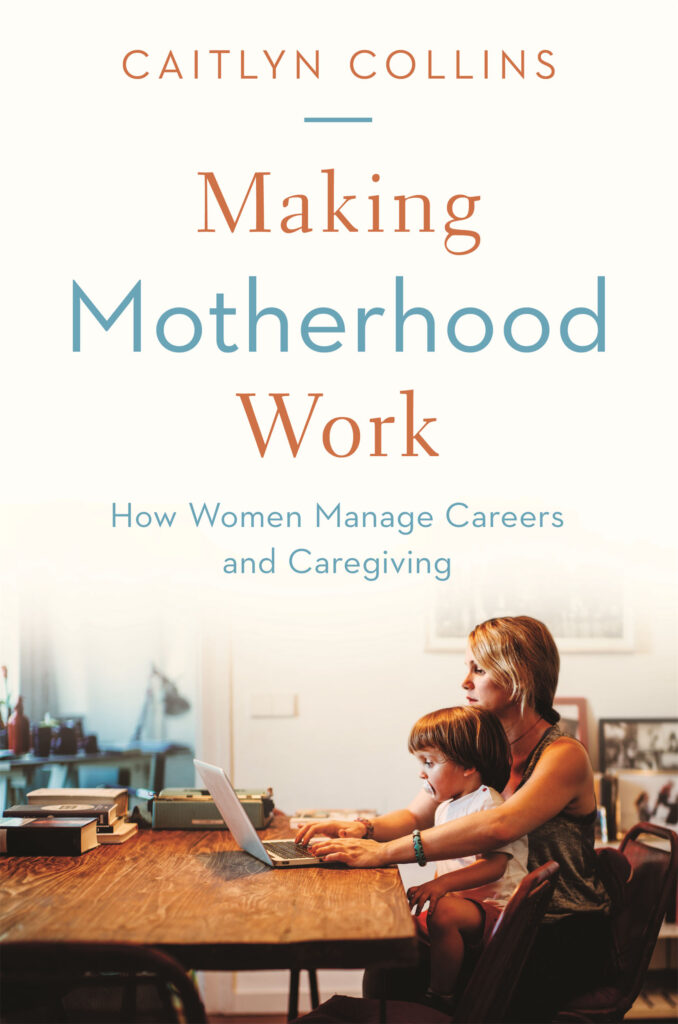Caitlyn Collins, Assistant Professor of Sociology and Women, Gender and Sexuality Studies
Making Motherhood Work: How Women Manage Careers and Caregiving
Caitlyn Collins has made a lot of mothers cry. It wasn’t intentional, but it happened while she conducted research for her book Making Motherhood Work: How Women Manage Careers and Caregiving. Collins interviewed 135 middle-income mothers in Germany, Sweden, Italy and the United States to find out how they were handling the demands of family life and career. While she found surprises in every country, she found the most unhappiness in the United States.

Collins would ask the moms what it meant to them to be a “good mother.” “A lot of my American moms’ eyes welled up, and then they had giant tears rolling down their faces,” she recalls. “What they told me is that they feel as if they’re failing their children. They feel as if they’re trying in every way, shape and form to be the best parent they can be, but they’re simply unable to fulfill their own idea of what it means to be a good mother.”
The reason? Many moms can’t spend as much time as they’d like with their children due to the demands of work. The United States is the only country in the industrialized world without federally mandated paid maternity leave.
In Germany, moms receive at least one year of paid maternity leave. Compare that to the United States, where moms are lucky to get 12 weeks unpaid, and they blame themselves for not being able to achieve that “work–life balance” so touted in the media. “Framing work–family conflict as a problem of imbalance … fails to recognize how institutions contribute to this anxiety,” Collins wrote in the New York Times. This is not a personal failing but an institutional one.
More robust family-leave policies have been shown to benefit kids, spouses, employers and moms. If the United States truly cares about family values, Collins argues, it needs to re-examine how it supports its families.



